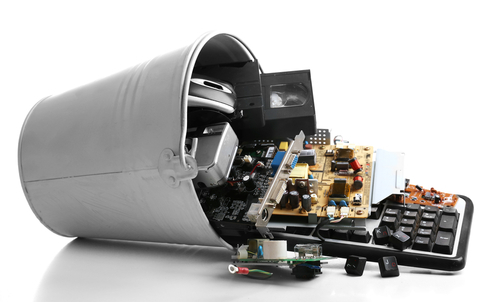UN warns of severe health risks from electronic/electrical waste in India
IANS Dec 15, 2017
The UN has warned about the health and environmental dangers from the processing of e-waste -- the discarded electronic and electrical material -- by the informal sector in India without proper safeguards.

"Severe health impacts and environmental damage are widespread in India, due to the final step of the e-waste processing by the informal sector," a report by the International Telecommunications Union and the UN University released on Wednesday said.Over 1 million poor people in India are involved in manual recycling operations, but "most of these people have very low literacy levels with little awareness of the dangers of the operations," it added.
The dangers come from "improper and unsafe treatment and disposal through open burning or in dumpsites," the report said.The report, Global E-waste Monitor 2017, said that domestically India produced 1.95 million tonnes of e-waste last year -- or about 1.5 kg per person -- and it also imports it from developed countries.E-waste includes a whole variety of small and large appliances, and electronic equipment including cell phones, TVs, refrigerators, air conditioners, computers and lamps, small appliance and large appliances, lamps.
Last year, the world produced 44.7 million tonnes of e-waste or 6.1 kg per person, which is four times more than the e-waste produced by each Indian. Only 8.9 million tonnes -- or 20 per cent of total global e-waste was recycled, it noted.The report estimated that the value of recoverable precious materials like gold, silver, copper, platinum, and palladium contained in last year's e-waste was $55 billion and much of it was going to waste.
A formal e-waste recycling sector is now being developed in major Indian cities and under the country's rules producers have extended responsibility for the handling the waste that ultimately results from their products, the report said.The main features of the regulations are a refundable deposit scheme that incentivises recycling and parallel to that is the creation of Producer Responsibility Organisations to handle the waste, it said.Looking ahead, the report said that the problem could become more acute with cheaper cell phones and other equipment becoming available. "This means that more people will be able to afford to purchase new equipment and that more equipment will eventually be discarded," it added pointing to the need for developing systems to safely handle the e-waste and recycle it.
-
Exclusive Write-ups & Webinars by KOLs
-
Daily Quiz by specialty
-
Paid Market Research Surveys
-
Case discussions, News & Journals' summaries